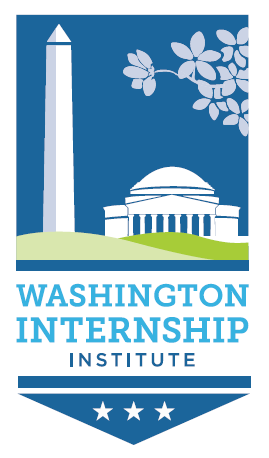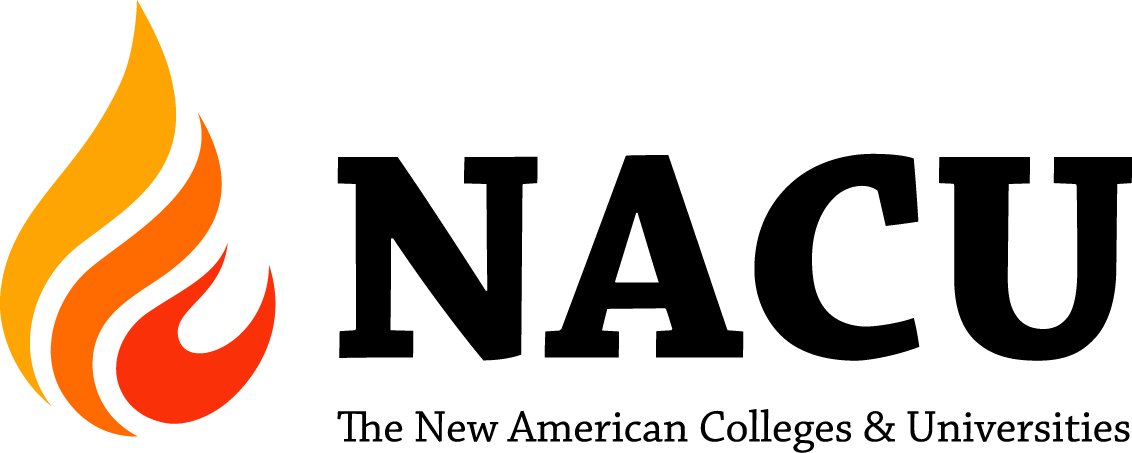What is the Washington Internship Institute (WII)?
The Washington Internship Institute (WII), an educational nonprofit organization, focuses on three principles: public service, leadership and professional development. Through rigorous academic internships and immersion experiences in the most powerful city in the world, WII equips students to become active citizens prepared to serve in their local, state, national and global communities in the 21st century.
Since 1990, more than 2500 college students, recent graduates, and graduate students have participated in our personalized academic internship programs and immersion seminars in Washington, D.C. A diverse group, they have represented all 50 states, Puerto Rico, and more than 50 countries, bringing a plurality of views, beliefs and opinions into each track.
We offer students a chance to differentiate themselves from others by gaining invaluable professional experience through an internship while--in most cases--continuing to earn credit from their home institution. However, this is not a typical classroom experience. Classes will take them into the offices of Congress, the briefing rooms of the Pentagon, and the auditoriums of think tanks such as the Woodrow Wilson International Center for Scholars and the United States Institute of Peace. Make no mistake, DC could be their campus for the semester. Every time they step outside their door, another opportunity to learn awaits them.
What is the benefit of an affiliation with the Washington Internship Institute?
An affiliation turns the Washington Internship Institute into your satellite campus in Washington, DC, offering students opportunities for academic, professional, and leadership development. Academic development takes place through stimulating and rigorous academic coursework along with co-curricular guest speakers and symposiums. Professional development in the form of challenging, career-specific internships places students in authentic working environments with the chance to connect with leaders in their field. Finally, leadership skills are developed through participation in community service projects and mentoring opportunities.
We encourage your institution to make WII your satellite campus in Washington, DC through an Institutional Partnership Agreement. This agreement requires no fee and creates a pathway for students interested in participating in our academic internship program.
Your students will gain a satellite campus in Washington, DC, complete with:
- A staff guiding your students through the entire process, from revising resumes and sending in applications to scheduling co-curricular and group activities, networking receptions and more;
- An internship in the student’s field of interest;
- A faculty of professors using the intellectual diversity and interdisciplinary nature of Washington, DC as a classroom;
- Facilities, such as classrooms, a computer lab, access to the Gelman Library at George Washington University;
- Conveniently located housing in the Washington, DC area
Many times, an affiliation allows students to participate in our program at little or no additional tuition cost to them. WII also offers your institution the ability to connect your students with your alumni base in Washington, DC, the 2500+ academic intern alumni that have completed our program, the 900+ offices where academic interns have been placed and the 30+ current partner institutions.
What do academic interns do at their placement?
“My internship for the spring semester is granting me the opportunity of a lifetime. I assist attorneys with legal research and attend witness depositions. The more I work in the office, the more I want to achieve my goals. I am currently working with a paralegal specialist and an Assistant Attorney General (AAG) on a case. The attorneys do not only assign you a specific task but they take you under their tutelage. They tell you everything you need to know. They explain in detail particular laws regarding particular cases. They also give pointers to undergraduates regarding law school. They advise us about how to succeed in law school and on the LSAT. Interning at OAG has already broadened my view as far as what I want to do after graduation.”
-Franceska Osmann, Office of the Attorney General for the District of Columbia, Rutgers University
“So far in DC, I have already learned far more about the American political system than I could have expected in two months. Since I have started my internship on Capitol Hill, I surpassed my previous understanding of the way Congress works.”
-Maggie DeMoura, Congressman Stephen Lynch’s Office, Fairfield University
“While at CBS, I interned in two different departments. Primarily, I interned with the CBS Evening News and the Special Events Unit. Each department featured different tasks that I would carry out on a daily basis, although in the news world you never really know what you will be working on from day to day. I was always involved in the process of putting the news on the air someway, somehow. This internship has taught me more about news production than I had ever known before. It solidifies my strong opinion that internships are really how you figure out what type of job is a good fit for you and they are also the best way to get the hands-on experience needed to succeed. This internship has helped to confirm the fact that journalism is the industry I need to work in to be happy.”
-Chris Ferreira, CBS Evening News, Washington, Roger Williams University
What do academic interns do in their coursework?
In addition to interning four full days per week, students take two courses at WII. One course is the internship seminar, and the other is a core course depending on which one of WII's five academic tracks the student chooses. Most students receive a full semester's worth of credit from their home institution for participating in WII's program.
The Internship Seminar: Reflections on Public Service, Leadership and Professional Development, required of all students, encourages students to make the connection between what they have learned in the classroom and what they are learning and doing at their internship sites. This course provides the context for discussing, reflecting on, and understanding the internship experience, allowing students to relate the internship not only to their major but also to future career endeavors. A professional e-portfiolio serves as the capstone assignment.
The core courses address policy-making processes and the constituents that influence policy in key debates in the field. Utilizing DC's location, courses include site visits to government agencies, think tanks, and advocacy groups.
What Co-Curricular Activities are Available?
Washington, DC is full of opportunities to learn and connect. In the evenings and on the weekends, students have time to broaden their interests as a result of living in a diverse, eclectic and international city. They can enjoy free nightly performances at the John F. Kennedy Center for the Performing Arts and free admission to all 17 of the Smithsonian museums in the DC area.
WII has arranged community service activities and group outings to Washington Nationals' baseball games, movies, barbecues and more. Participants also have opportunities to meet with policy-makers, diplomats, military officials, congressional leaders and other experts as part of our Critical Dialogues Program Series. Speakers have included the Honorable Dennis Hastert, The Honorable Joe Sestak, Mark Shriver and Ambassador James Warlick.
Where do academic interns live?
Each semester, WII puts together a diverse mix of talented and driven students to share experiences and advice to the betterment of everyone. Students meet their peers from across the country and around the world. Sharing an apartment provides an instant “network,” helps students get to know their classmates, and often creates lasting friendships.
WII’s housing is in a prime location. The subway station is just a five-minute walk from the housing. Depending on the location of their internship site, the students' commute may be as short as 15 minutes. With WII, your students can live within 5 miles of the White House, U.S. Capitol, Smithsonian Institution, Kennedy Center, and—for convenient travel--Reagan Washington National Airport!











